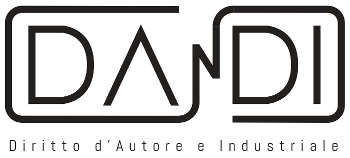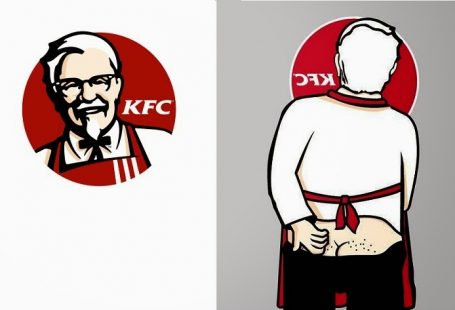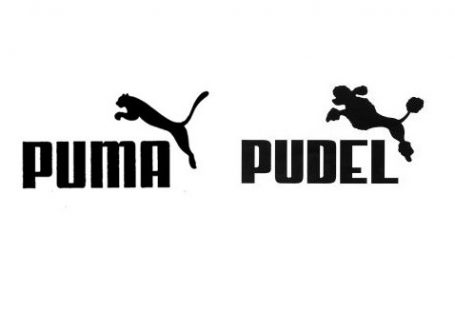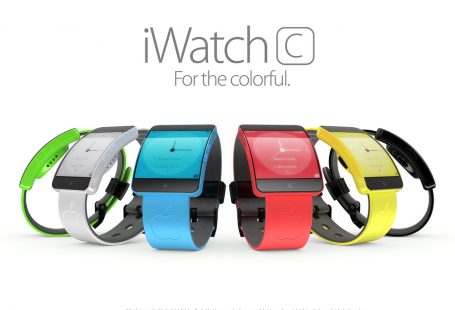WIPO Arbitration and Mediation Center -Uovo Art LLC v. Mira Hold, Mira Holdings, Inc. – Case No. D2016-0214
The Parties
The Complainant is Uovo Art LLC of Long Island City, New York, United States of America (“United States”), represented by Verna Law, United States.

The Respondent is Mira Hold, Mira Holdings, Inc. of Minneapolis, Minnesota, United States, represented by John Berryhill, Ph.d., Esq., United States.
The Domain Name and Registrar
The disputed domain name <uovo.com> is registered with WorthyDomains LLC (the “Registrar”).
Procedural History
The Complainant is New York based company specializing in the transportation and storage of artworks. The Complainant has registered the trademarks UOVO, UOVO FINE ART STORAGE, and UOVO FASHION STORAGE (collectively the “UOVO marks”) with the United States Patent and Trademark Office (“USPTO”). UOVO was registered on December 9, 2014. UOVO FINE ART STORAGE and UOVO FASHION STORAGE were registered on November 19, 2013. The Complainant operates two art storage facilities in the New York City metropolitan area, and maintains a website providing information about its services and facilities at “www.uovo.org”. “Uovo” is an Italian word that means “egg” in English. The disputed domain name <uovo.com> was registered with the Registrar on September 9, 2015.
Parties’ Contentions
Complainant
The Complainant submits that the disputed domain name is confusingly similar and virtually identical to its UOVO marks. The Complainant asserts ownership of a family of UOVO marks comprised of the three registered UOVO marks and two additional common law marks, UOVO ART STORAGE and UOVO WINE STORAGE. According to the Complainant, it has strong rights in the UOVO family of marks and has made extensive use of the marks since 2013. The Complainant contends that the Respondent has no rights or legitimate interests in the disputed domain name. The Complainant observes that the Respondent registered the disputed domain name after the Complainant had established rights in its family of UOVO marks, and that the Respondent has not been commonly known by the disputed domain name. The Complainant asserts that the Respondent has not used or made demonstrable preparations to use the disputed domain name in connection with a bona fide offering of goods and services, nor utilized the disputed domain name for any legitimate business purpose, nor made a legitimate noncommercial or fair use of the disputed domain name. To the contrary, the Complainant submits that the Respondent wrongfully appropriated the Complainant’s UOVO mark in order to lure Internet users to a website on which the Respondent is offering the disputed domain name for sale. The Complainant maintains that the Respondent registered and is using the disputed domain name in bad faith.
Respondent
The Respondent submits that the disputed domain name consists of a dictionary word – “uovo” – an Italian word that translates into English as “egg”. The Respondent asserts that “uovo” is primarily and predominantly associated with its common or dictionary meaning, that the Complainant’s use of the word “uovo” is limited by its trade, and that “uovo” is by no means exclusively or distinctively associated with the Complainant. The Respondent maintains that while “uovo” is not descriptive of the Complainant’s services, the Complainant’s mark most likely was selected based on the connotative value of the generic word, explaining that artwork, like eggs, must be delicately handled. According to the Respondent, “uovo” as a four-letter word identifying a staple food product has substantial commercial value independent of the Complainant’s mark, as reflected by secondary markets for domain names. The Respondent denies any knowledge of the Complainant’s mark, and represents that no use had been made of the disputed domain name in any way related to the Complainant’s art storage services.
The Respondent submits that the Complainant acquired the domain name <uovo.org> from Rarenames in late 2012 or early 2013, the same time frame in which the Complainant first applied to the USPTO to register its UOVO-formative marks. According to the Respondent, this demonstrates the Complainant’s knowledge of the commercial value of the “uovo” as a generic domain name predating the Complainants registration and use of its UOVO marks. The Respondent asserts that the Complainant would have known at that time that the disputed domain name <uovo.com>, which was already registered, would be of even greater commercial value than <uovo.org>.

The Respondent submits that it has rights or legitimate interests in the disputed domain name because the Respondent’s “commercial expectation interest” for the disputed domain name is not premised on the perceived value of the Complainant’s trademark, but rather based on a reasonable expectation that the value of the disputed domain name is derived from its value as a dictionary word. Relying on OHIM data, the Respondent submits there are more than 700 trademark registrations in which “uovo” is a constituent component, including many registrations in which “uovo” is a descriptive component.
According to the Respondent, the foregoing demonstrates that “uovo” has a broad range of commercial uses, and is valuable as a domain name because it is a generic four-letter word, with legitimate commercial value in a descriptive or generic sense. The Respondent cites a number of UDRP panel decisions as recognizing the legitimate commercial value of domain names consisting of short generic words.
The Respondent denies the Complainant’s allegations that the disputed domain name was registered and is being used in bad faith. The Respondent explains that a four-letter generic word has been registered and has been posted for general sale to any and all who might wish to negotiate its purchase. The Respondent notes that the disputed domain name has not been used for any purpose relating to art storage or warehousing services, and that the Respondent has not targeted the Complainant nor attempted to pass itself off as the Complainant. The Respondent submits that no attempt has been made to tarnish the Complainant or to exploit or harm the Complainant’s goodwill associated with the operation of an art storage service. The Respondent denies any attempt to divert or capitalize on customers seeking the Complainant’s art storage service.
Discussion and Findings
Scope of the Policy
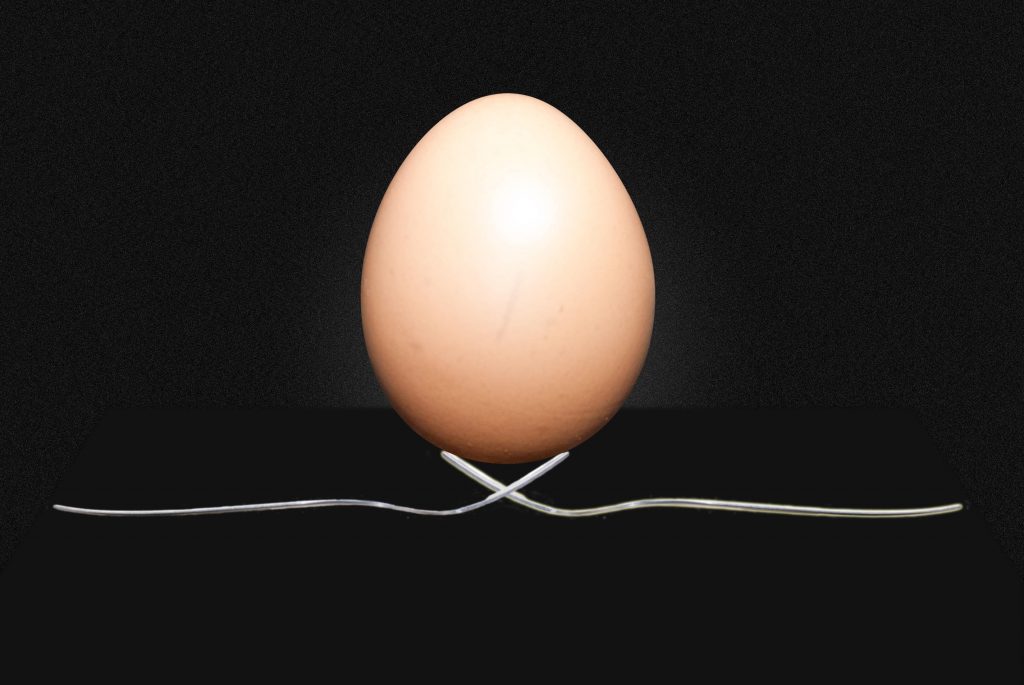
The Policy is addressed to resolving disputes concerning allegations of abusive domain name registration and use.
Paragraph 4(a) of the Policy requires that the Complainant prove each of the following three elements to obtain a decision that a domain name should be either cancelled or transferred:
(i) The domain name registered by the Respondent is identical or confusingly similar to a trademark or service mark in which the Complainant has rights; and
(ii) The Respondent has no rights or legitimate interests with respect to the domain name; and
(iii) The domain name has been registered and is being used in bad faith.
Cancellation or transfer of the disputed domain name are the sole remedies provided to the Complainant under the Policy, as set forth in paragraph 4(i).
Identical or Confusingly Similar
UOVO is the dominant element of the Complainant’s marks and is incorporated in its entirety in the disputed domain name. The Panel finds that the disputed domain name is confusingly similar to the Complainant’s UOVO and UOVO-formative marks.
Accordingly, the Panel finds that the Complainant has satisfied the requirements of paragraph 4(a)(i) of the Policy.
Rights or Legitimate Interests
The Panel considers that the Complainant has made a prima facie showing in this case. The disputed domain name is confusingly similar to the Complainant’s UOVO marks, all of which were registered prior to the Respondent’s registration of the disputed domain name. The disputed domain name resolves to a website on which the domain name is offered for sale for USD 125,000.
Pursuant to paragraph 4(c) of the Policy, a respondent may establish rights to or legitimate interests in the disputed domain names by demonstrating any of the following:
(i) before any notice to it of the dispute, the respondent’s use of, or demonstrable preparations to use, the domain name or a name corresponding to the domain name in connection with a bona fide offering of goods or services; or
(ii) the respondent has been commonly known by the domain name, even if it has acquired no trademark or service mark rights; or
(iii) the respondent is making a legitimate noncommercial or fair use of the domain name, without intent for commercial gain to misleadingly divert consumers or to tarnish the trademark or service mark at issue.
It appears to the Panel that the Respondent’s business model involves trading in domain names, wherein the Respondent seeks to acquire domain names of value, which may then be held or offered for sale to the public. The Respondent maintains that it seeks to acquire generic or descriptive domain names, and in particular short generic domain names that may attract a premium price when auctioned in the domain name secondary market.
The Respondent claims not to have been aware of the Complainant’s marks when registering the disputed domain name.
Accordingly, in cases where a respondent makes a plausible claim of descriptive use, the dispositive question is not necessarily limited to whether the respondent was aware of the complainant’s trademark rights, although such knowledge may be a relevant consideration. The larger question is whether, in light of the totality of facts and circumstances of a given case, it has been demonstrated that the respondent’s real aim was to exploit and profit from another’s mark. Where there is evidence that a respondent has targeted the complainant or the complainant’s mark – sought primarily to benefit from the mark’s value – the attendant circumstances may support an inference that the respondent was aware of the complainant’s rights.
The facts and circumstances of this case, however, militate against a finding that the Respondent has targeted the Complainant and the Complainant’s UOVO marks. There is no dispute that “uovo” is the Italian word meaning “egg”, a fact that is not contested by the Complainant and is expressly acknowledged in the Complainant’s United States registrations for the UOVO marks. There is no substantial indication in the record that the Complainant’s UOVO marks – registered in late 2013 and early 2014 – have become well known even in the niche market the Complainant serves, let alone among the general public. Further, the Complainant’s storage facilities all appear to be located in the New York City metropolitan area.
The Respondent has presented a plausible claim that the disputed domain name was registered based on its attractiveness as a dictionary word or descriptive term. It is not a violation of the Policy to register a domain name and offer it for sale to the public where such use is not seeking to profit from and exploit the trademark of another. The Respondent’s asking price for the disputed domain name of USD 125,000 does not in and of itself compel a conclusion that the Respondent is attempting to trade on the goodwill associated with the Complainant’s mark. The Respondent has made a plausible showing, supported by some evidence, that domain names consisting of four letter generic words also may be valuable commodities in the domain name secondary market.
Registered and Used in Bad Faith
Paragraph 4(b) of the Policy states that any of the following circumstances, in particular but without limitation, shall be considered evidence of the registration and use of a domain name in bad faith:
(i) circumstances indicating that the respondent registered or acquired the domain name primarily for the purpose of selling, renting, or otherwise transferring the domain name registration to the complainant (the owner of the trademark or service mark) or to a competitor of that complainant for valuable consideration in excess of the respondent’s documented out-of-pocket costs directly related to the domain name; or
(ii) circumstances indicating that the respondent registered the domain name in order to prevent the owner of the trademark or service mark from reflecting the mark in a corresponding domain name, provided that the respondent has engaged in a pattern of such conduct; or
(iii) circumstances indicating that the respondent registered the domain name primarily for the purpose of disrupting the business of a competitor; or
(iv) circumstances indicating that the respondent is using the domain name to intentionally attempt to attract, for commercial gain, Internet users to its website or other online location, by creating a likelihood of confusion with the complainant’s mark as to the source, sponsorship, affiliation, or endorsement of the respondent’s website or location or of a product or service on its website or location.
The Policy provides a remedy only in cases where a complainant proves that the disputed domain name has been registered and is being used in bad faith.
After careful consideration of the totality of facts and circumstances in the record, the Panel concludes that the Complainant has not satisfied its burden of demonstrating that the Respondent registered the disputed domain name in bad faith. Notwithstanding that the Complainant’s registration of the UOVO marks preceded the Respondent’s registration of the disputed domain name, the Complainant has not shown that the Respondent more likely than not registered the disputed domain name with bad faith intent to exploit or profit from the Complainant’s trademark rights. As discussed above, the Respondent has asserted a plausible good faith basis for the Respondent’s registration of the disputed domain name. No convincing evidence has been offered by the Complainant that the Respondent’s proffered explanation is a pretext for cybersquatting.
Decision
For the foregoing reasons, the Complaint is denied.
William R. Towns
Presiding Panelist
Thomas D. Halket
Panelist
Richard G. Lyon
Panelist
Date: April 18, 2016
Dandi Law Firm provides legal assistance in several Practice Areas. Check out our Services or contact Us!
